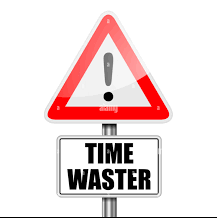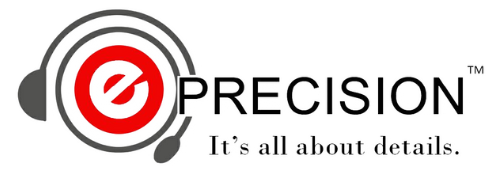
Time Wasters in the Workplace
1. Social Media
Social Media has become a part of our life. We have a presence on different social platforms like Facebook, Linkedin, Twitter, Instagram, etc. If you sneak peek at social media at work time, it’s not a problem, but when you frequently look at social media and check the notification, that kills both time and productivity.
According to the Forbes study, employees spend at least 1.5 hours every day scrolling their social media accounts during work time. In Total, you are wasting 7.5 hours just scrolling social media every week.
2. Emails
Email is one of the popular communication ways with coworkers, clients, and customers. But have you thought about how much productive time you are wasting each day just reading and answering emails?
An average of 121 emails have been sent and received by an office professional each day. According to the Forbes study, Office professionals check their email 15 times a day or every 37 minutes, and you are wasting 2.5 hours of productive time each day.
3. SmartPhone/Personal Work
Frequently checking smartphone notifications, irrelevant calls, texting with your friends, and relatives, online shopping, and chatty coworkers are continuously wasting productive time in the office. Have you ever thought about it?
According to the professionals surveyed by staffing firm OfficeTeam, an average of 56 minutes of employees use their cell phone for non-work activities during the office per day, and 62% of managers think the staff spends the most time on social networks when using their own mobile devices during business hours.
4. Unnecessary Meetings
The Meeting is a cost of time and productivity. In a survey conducted by IGLOO, 47% of respondents thought that meetings are not productive.
Every week each employee spends 5 hours 3 minutes in a meeting and 4 hours 13 minutes preparing for them.
5. Gossiping
Start gossiping with your coworkers about irrelevant topics that have no impact on your work. When you are in deep work, your coworker can come to you with irrelevant work or discussion that can damage your productivity.
Researchers have found that 86% of employees gossip during the workday.
Additional studies by the University of Virginia and Indiana University demonstrate that.
Gossip damages productivity, and trust, and divides employees by diminishing morale.
Gossip can hurt good workers’ reputations, damage advancement, and promotion opportunities, and ultimately force the worker to seek employment where he/she is valued.
6. Multitasking
You might think multitasking at a time makes you smart & productive, I suppose you might be wrong. Because of multitasking, you are not able to finish your priority task on time.
The researcher has found that people can only do one task at a time. If you continuously switch your work is a waste of time.
One study shows that attempts at multitasking caused a 40% loss of productivity.
7. Noisy Environment
The noisy office environment or unnecessary loud coworkers can distract you from your work which wastes your time. A loud printer, the ring of cell phones, gossiping, and talking loud make the office environment noisy.
The Guardian’s study has found that office workers are losing 86 minutes a day because of office distractions.
————————————————–
How can your team stop wasting time in the workplace?
Set a schedule for deep work.
You can encourage your employees to set a schedule for deep work by themselves.
Every coworker will know the schedule of deep work so that no one can distract you from your work.
When you are in deep work, keep your cell phone switched off, logout from all social media, and use the headphone.
If you have remote employees, you can share working tips remotely with them to stay productive.
Use time tracking.
If you want to give your employee a clear overview, how are they using their work time?
Encourage your employee to use time tracking software like Apploye.
When your employee uses “time tracking software with screenshots, he/she will get the full overview of how much time he/she was spending on non-office work-related jobs.
Keep your email inbox closed.
You can select a specific time to check the email that you have received and reply to them. Otherwise, you can set an auto-reply until you finish your particular task. The same principle can apply to cell phone messages as well.
Turn off/mute your smartphone.
You can use an analog phone instead of a smartphone in the workplace.
Turn off or mute your phone when you want to finish a specific task within a particular period.
Most workplaces that provide company-owned smartphones to their employees, prefer locking the smartphones in kiosk mode. With this, only selective business apps can run on the phone. The lesser the apps, the lesser the distraction.
Stop Multi-tasking
First, you can make a list of the daily tasks that you need to complete. You can create a priority list and make sure that each task will get your full focus.
Sometimes you have to do an additional task, and you don’t have time for it. So be prepared yourself to say no.
Don’t be afraid to say no when you ask to complete an additional task.
You can set a specific time every day to check email, social media, and other messages.
Set a time for Break
The human being is not a machine; taking a little break will help you do work better. Taking a little break at work can boost your performance.
Studies have found that breaks can reduce stress and help to maintain performance throughout the day.
You can use the Pomodoro time tracker at work to stay productive.
Reduce the use of social media
Social media has created FOMO among us. FOMO means- Fear of Missing Out. That’s why we are frequently checking social media. We always want to see what other people are doing on social media?
It is not possible to avoid social media, but you can reduce the time to use social media.
First, set a specific time each day when you want to go on social media.
Second, turn off the notifications on your mobile or laptop. Third, set the alarm for your social media use.
And keep a note and see how much time you have spent on social media.
Noise-free Office environment
A closed workspace is more noise-free than an open workspace.
If you are working in an open workspace and can’t separate yourself from noisy coworkers, better use a headphone.
A closed office layout offers more quiet and private space for employees to engage in focused work with fewer distractions. Employers should focus on creating a noise-free office environment.
